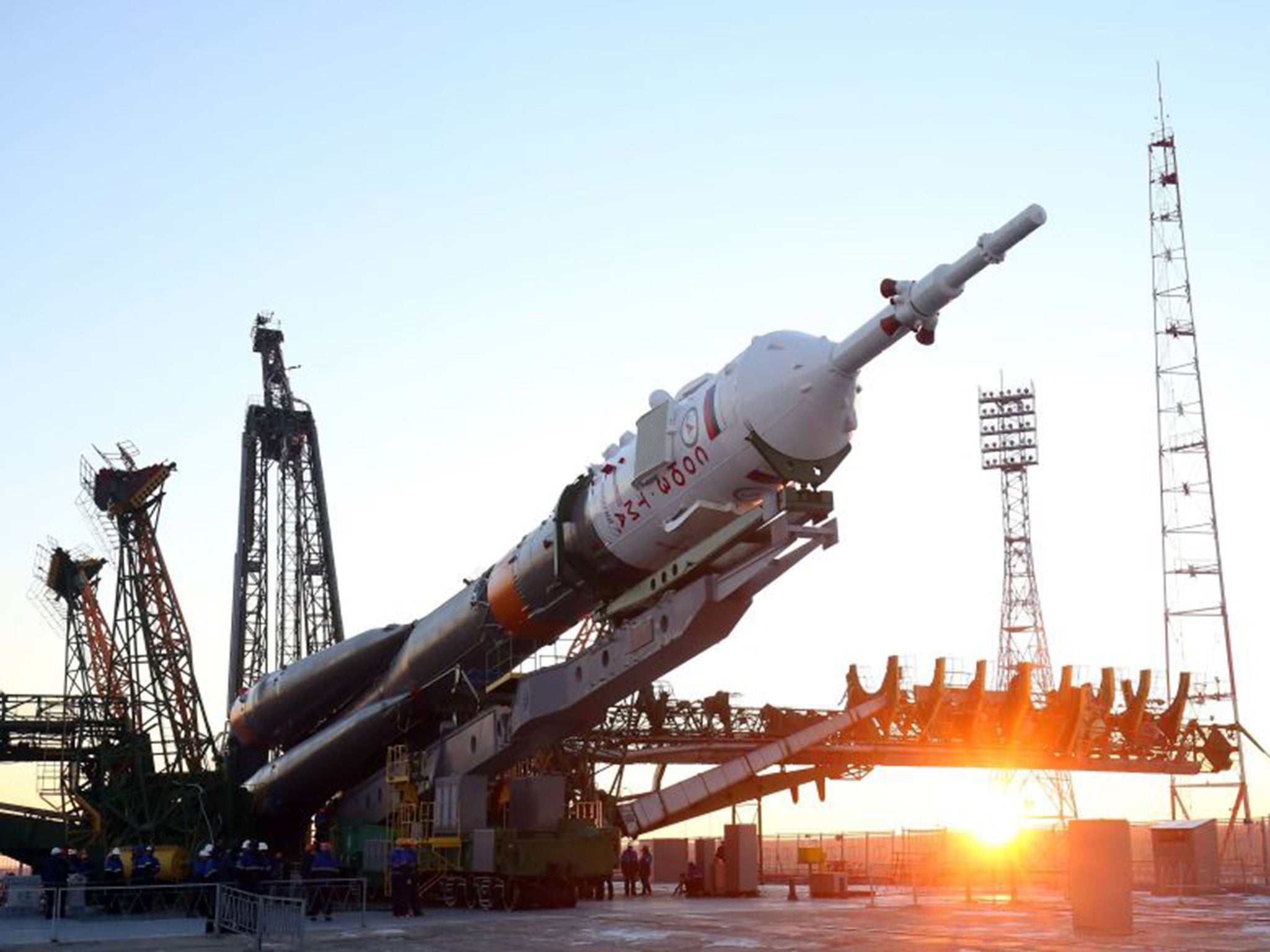Tim Peake: Parents of astronaut blasting into space say they're more worried about him on the M27
Prospect of sitting on top of a 162ft metal tube filled with more than 270 tonnes of highly explosive rocket fuel would be daunting for anyone

He might be preparing to be blasted into space at 17,500mph on 15 December, but Tim Peake’s parents are more worried about him driving home on the M27.
As the giant Russian rocket that will take Major Peake to the International Space Station (ISS) was rolled out on to the launch pad in the bitingly cold and snow-frosted Kazakhstan steppe, Nigel and Angela Peake were among the crowd of onlookers.
On 15 December, their son will become Britain’s first professional astronaut, with the UK’s previous space men and women having had US or dual citizenship or taken part in privately funded trips.
The Soyuz FG rocket, a reliable workhorse of the Russian space programme, has completed more than 50 launches without incident.
But the prospect of sitting on top of a 162ft metal tube filled with more than 270 tonnes of highly explosive rocket fuel would be daunting for anyone.
However, the 43-year-old Major Peake’s father Nigel, who is from Chichester, was in confident mood, comparing the flight to the ISS, orbiting some 220 miles above the Earth, with a road trip around Southampton.
“We’re not worried at all. We’ve been following his training and know how thorough it is, so we don’t have any fears,” he said. “I’m more worried about him driving home on the M27. That’s far more dangerous, believe me, than going up there.”
Major Peake, who will surely hear the words “Ground Control to Major Tim” at some point during his six-month stay in space, will wear a Union Jack on his sleeve as a British member of the European Space Agency.
“We’re immensely proud. As you can imagine, it’s quite surreal to think you’re the father of an astronaut, especially a British astronaut,” Nigel Peake said. “So we’re very, very proud, and just a little bit overawed by the whole operation.”
Travelling with Major Peake in the tiny Soyuz TMA space capsule will be Russian crew commander Yuri Malenchenko and American astronaut Tim Kopra.
A visitor’s guide to the International Space Station
Show all 8After lift-off, it will take six hours for the capsule to catch up with the ISS, travelling at 17,500 mph. Docking with the station is one of the trickiest stages of the journey. The whole process is automatic, controlled by computer, but can be carried out manually if required.
Speaking before the launch, Major Peake said: “Any time two vehicles come in close proximity in space is hazardous. The docking needs to be closely monitored and you have to make sure you’re on target and on speed.”
His mission, called “Principia” in homage to Sir Isaac Newton’s ground-breaking text on gravity and motion, is symbolic of an about-turn in the UK Government’s attitude to manned space flight.
For decades Britain has refused to have anything to do with human missions, preferring to focus on satellites and robot probes.
During his time aboard the ISS, Major Peake will participate in 265 experiments, and observe the effects of microgravity on his own body.
He will also contribute to the day-to-day maintenance of the space station’s life support, power and communications systems. This could involve taking space walks, as well as more down-to-Earth activities such as fixing the 15-year-old suction toilets.
The hardest part of his training, he told a BBC Horizon programme last night, was learning Russian, as all the controls on board are labelled in that language.
The first Briton in space was the former chemist Helen Sharman, who visited the Mir space station in May 1991. Her trip was privately funded by Project Juno, a consortium involving the former USSR and British companies.
Subscribe to Independent Premium to bookmark this article
Want to bookmark your favourite articles and stories to read or reference later? Start your Independent Premium subscription today.

Join our commenting forum
Join thought-provoking conversations, follow other Independent readers and see their replies